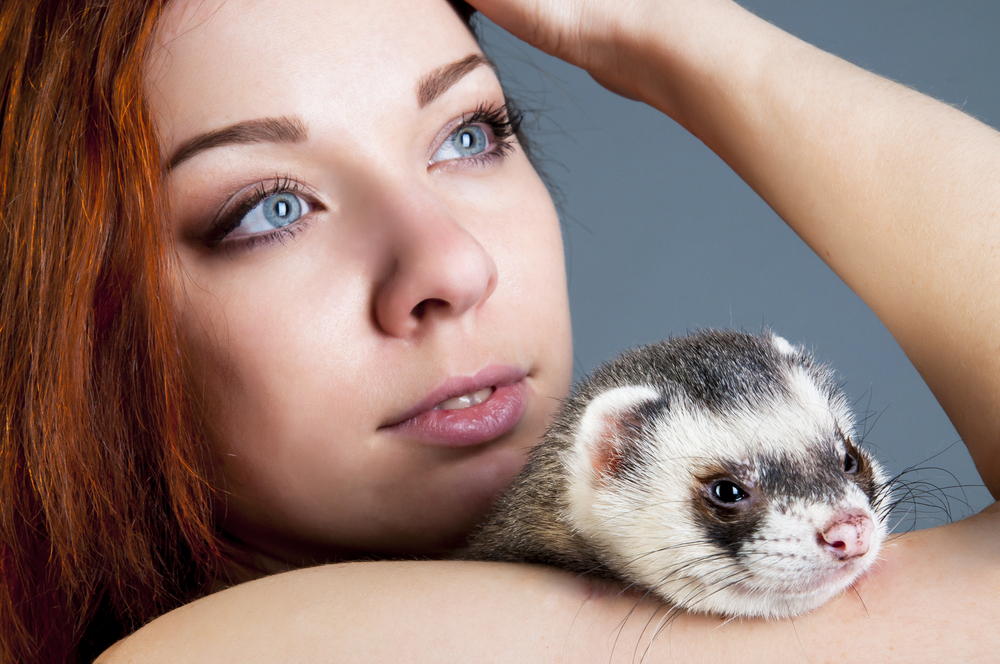Adrenal disease is one of the most common ferret maladies, characterized by tumours that grow on the adrenal glands. Symptoms of adrenal disease in ferrets include hair loss, weight loss, skin irritation, sores, lethargy, aggressive male behaviour, and swollen vulva in jills. The most effective treatment is surgery to remove the impacted gland, although non-curative medications can be given to treat the symptoms. To prevent adrenal disease, ferrets should be exposed to as much natural light as possible, limited in their exposure to artificial light, allowed plenty of exercise and human interaction to reduce stress, and be at least four months old before spaying or neutering procedures.
Insulinomas are growths on the pancreas that release insulin, causing low blood sugar. Common symptoms are weakness, lethargy, sleeping for long periods of time and not easily waking, vomiting, pawing at the mouth, drooling, loss of coordination, disorientation and seizures. There is no cure for insulinomas, but surgery and medication can help ease the symptoms. Prevention of this debilitating disease is best achieved through a well-balanced, quality diet rich in animal protein, and low in sugar and simple carbohydrates.
Lymphoma is the most common form of ferret cancer, for which there is no cure. Symptoms are not easily detected and once they are noticed, it is generally too late. Typical symptoms include weakness, diarrhoea, weight loss, swollen lymph nodes, cough or difficulty breathing. If the cancer is caught in the early stages, treatment would include chemotherapy to reduce the size and number of the tumours. However, most cases of lymphoma in ferrets are not diagnosed until the cancer is well advanced. In these instances, a veterinarian may prescribe various medications to keep the ferret as comfortable as possible. The only prevention for lymphoma is early detection, which requires regular check-ups and periodic blood work to identify any abnormalities.
Given the ferret’s natural curiosity and sensitive digestive tract, gastrointestinal disorders are quite common. Blockages can cause vomiting, loss of appetite or complete refusal to eat or drink, straining during bowel movements, constipation, weakness and diarrhoea. Treatment most always requires surgery to remove the foreign object or blockage. The best prevention is supervision. Ferrets must be closely watched any time they are let out of their cages – ferret proofing the home as much as possible will eliminate many potential hazards, and regular grooming will thwart the growth of hairballs.
Epizootic Catarrhal Enteritis, or ECE, is a serious ferret disease caused by a viral infection. Characterized by profuse, bright green diarrhoea and bouts of vomiting, the only treatment is care and close monitoring for worsening symptoms. Ferrets infected with the ECE virus need to be hand-fed by syringe until they are able to resume normal eating and drinking on their own. A veterinarian may also prescribe a special canned diet to ease symptoms and aid recovery. As this virus can lay dormant in previously infected ferrets for up to six months, there is no way to know if an animal is actively carrying the disease. Thankfully, though, infected ferrets develop lifetime immunity to the virus after the initial illness passes. The only real method of prevention is to bathe thoroughly and change clothes immediately after exposure to other ferrets and before handling one’s own.













